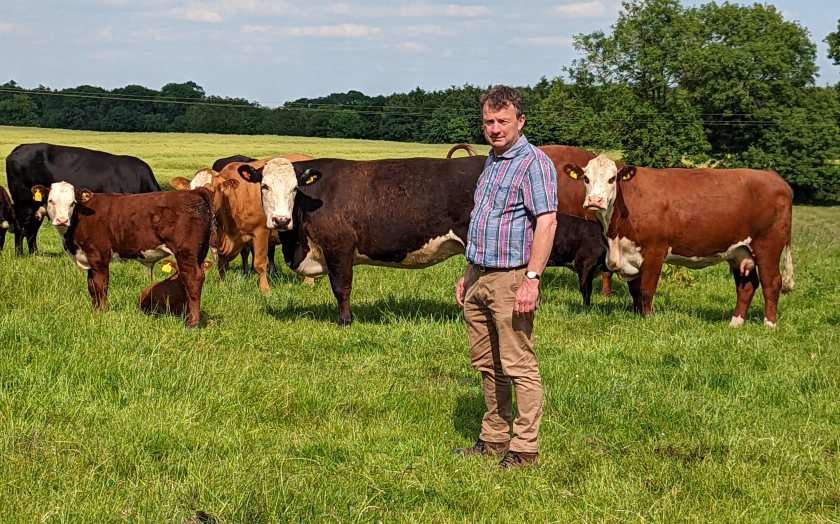
Thornby Farms in Northamptonshire has been awarded the inaugural VetPartners Sustainable Beef Farm of the Year award, in recognition of the farm’s dedication to aligning food production with sustainability.
The team have installed a rainwater collection system on the cattle sheds, which is used to supply drinking water to livestock, reducing demand for mains water use.
The farm has been in higher tier stewardship for nearly 30 years, which has helped the team maintain 82km of hedgerows and 8 hectares of lowland traditional hay meadow, with no artificial fertiliser ever used.
They have also installed 6m margins around arable fields, which total to 40 ha of wild bird seed, pollen and nectar mixes to support wildlife.
Thornby Farms manager Peter Moyes was nominated for the award by his vet, James Barker, from Cross Counties Farm Vets.
“Thornby Farms immediately sprung to mind when I heard about the awards,” said Mr Barker.
“It’s the farm I always use an example of a sustainable approach as they very much focus on the environment, animal welfare and profitability."
Last year, the farm's carbon footprint was assessed to identify further areas for improvement.
From this they’ve started weighing calves and selecting the heaviest to finish indoors, reducing the average time to finish, which means less carbon emissions per kilo of meat produced.
Thornby farms was selected as the winner through voting, which included in-person votes from Beef Expo attendees and online votes.
The other shortlisted farms were Curtis Farm in Essex, run by George Young, and the Chatsworth Estate farm in Derbyshire, managed by David Howlett.
Mr Young keeps a herd of Red Poll cattle, which are mob grazed on herbal leys, including agroforestry land. Herd management decisions are made with both animal welfare and ecology in mind.
This has meant working collaboratively with his vet to find the best approach to resolving disease challenges with neosporosis and leptospirosis.
Mr Howlett has transitioned the farm to a more grass-based system, which has also meant moving away from Limousins to more native breeds.
While shifting to a more extensive forage-based system, the whole team has engaged with training, which has included full-team involvement in monthly vet meetings and tailored regenerative agriculture training, also delivered through the vet practice, LLM Farm Vets.
